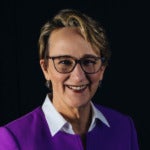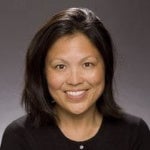Description
California, it’s often been quipped, is where the future happens first. From technology and entertainment to policy and social reform, California is often at the leading edge of our latest trends—and work is no exception. While California boasts a strong economy by many measures of growth, too many Californians have not enjoyed the benefits of the state’s broader economic success and the extraordinary wealth generated. As the nation grapples with demographic and geographic economic inequities that have been growing over the first two decades of the 21st century, and that have been exacerbated in this time of national crisis, what does the Golden State plan to do so that workers of every race, ethnicity, geography and gender have what they need to support themselves and their families, and thrive now and in the future?
Established prior to the COVID crisis, California’s Future of Work Commission has been tasked with confronting this question. It aims to create a new social compact for California workers, based on an expansive vision for economic equity that takes work and jobs as the starting point. As we’ve seen in the economic fallout of COVID-19, our policies, practices, and institutions are badly in need of an upgrade. The decisions we make now—on job quality, equity, wages, working conditions, advancement, and more—will chart the course of opportunity for generations of Californians to come, and for our nation as a whole. Now is the time to lay the foundation for a more vibrant and inclusive economy than the one we had before. We invite you to join this discussion and hear firsthand what California is doing to build a brighter future of work.
Speakers

Mary Kay Henry @MaryKayHenry
International President, Service Employees International Union @SEIU; Co-Chair, California Future of Work Commission
Mary Kay Henry is the International President of the 2 million-member Service Employees International Union (SEIU), and her leadership is rooted in a deep-seated belief that when Black, brown, Asian Pacific Islander, and white working people join together we can make the impossible possible. Under her leadership, SEIU members have won major victories to improve the jobs of healthcare, property services, and public sector workers across the United States, Canada, and Puerto Rico. Henry’s decision to back the courageous fast-food workers and other service and care workers in the historic “Fight for $15 and a Union” movement has helped 24 million working Americans win wage increases.
In 2010, Mary Kay Henry became the first woman elected to lead SEIU. Since then, Fast Company magazine named her one of the 100 most creative leaders in the economy, Politico magazine named her one of the top 50 visionaries reshaping American politics, and in 2019 the governor of California tapped her to co-chair the state’s Future of Work Commission.
Henry believes that to build an inclusive, sustainable economy we need to empower all working people to join together in Unions for All to negotiate for family-sustaining jobs. Together, SEIU members are using our strength in numbers to fight for access to affordable, quality healthcare for all, a fair immigration process for new Americans and Canadians, and safety and justice for all families, no matter what our color or where we come from.

James Manyika
Senior Partner, McKinsey & Company @McKinsey; Chairman and Director, McKinsey Global Institute @McKinsey_MGI; Co-Chair, California Future of Work Commission
James Manyika is a senior partner at McKinsey & Company and chairman and director of McKinsey Global Institute (MGI). Based in Silicon Valley for over 20 years, James has worked with the chief executives and founders of many of the world’s leading technology companies on a variety of issues including strategy and innovation. At MGI, James has led research on technology, the digital economy, the future of work, as well as on productivity, growth, and competitiveness.
James was appointed by President Barack Obama to serve as vice chair of the Global Development Council at the White House, and by US Commerce Secretaries to the Commerce Department’s Digital Economy board of advisers and the National Innovation Advisory Board. He serves on the boards of the Council on Foreign Relations and the Broad Institute of MIT and Harvard, and he is involved in research and advisory boards at Oxford, Stanford, MIT, and Harvard. He serves on the boards of the Hewlett, MacArthur, and Markle Foundations.
A Rhodes Scholar, James received his DPhil, MSc, and MA from Oxford in AI and robotics, mathematics, and computer science, and his BSc in electrical engineering from the University of Zimbabwe as an Anglo-American Scholar. He has been elected a fellow of the American Academy of Arts and Sciences, a distinguished fellow of Stanford’s AI Institute and a fellow of DeepMind.
James is a member of the Trilateral Commission and has been a non-resident senior fellow of the Brookings Institution in Economic Studies. He was a visiting scientist at NASA Jet Propulsion Labs and a faculty exchange fellow at MIT. At Oxford, he was a member of the Programming Research Group and the Robotics Research Lab, and he was a fellow at Balliol College.

Julie Su @JulieSuCA
Secretary, California Labor and Workforce Development Agency @CALWDA
Julie Su, appointed by Governor Gavin Newsom, is the Secretary for the California Labor and Workforce Development Agency (LWDA). The LWDA enforces workplace laws, combats wage theft, ensures health and safety on the job, connects Californians to quality jobs and career pathways, and administers unemployment insurance, workers compensation, and paid family leave. LWDA oversees seven major departments, boards, and panels that serve California workers and businesses by improving access to training, promoting high road jobs, eliminating barriers to employment, and creating a level playing field for employers. As California Labor Commissioner from 2011 through 2018, Su enforced the State’s labor laws to ensure a fair and just workplace for both employees and employers. A report on her tenure released in May 2013 found that her leadership has resulted in a renaissance in enforcement activity and record-setting results. In 2014, she launched the first “Wage Theft Is a Crime” multimedia, multilingual statewide campaign to reach out to low-wage workers and their employers to help them understand their rights and feel safe speaking up about labor law abuses.
Moderator

Eduardo Porter @portereduardo
Economics Reporter, The New York Times @nytimes
Eduardo was born in Phoenix and grew up in the United States, Mexico, and Belgium. He is an economics reporter for The New York Times, where he was a member of the editorial board from 2007 to 2012 and the Economic Scene columnist from 2012 to 2018. He began his career in journalism as a financial reporter for Notimex, a Mexican news agency, in Mexico City. In 2000, he went to work at The Wall Street Journal in Los Angeles and joined the Times in New York in 2004. He has also reported from Tokyo, London, and São Paulo. Eduardo co-hosts the podcast The Pie, presented by WBEZ-Chicago and the Becker Friedman Institute at the University of Chicago. He is the author of The Price of Everything (2011), an exploration of the cost-benefit analyses that underpin human behaviors and institutions, and American Poison (2020), about how racial hostility has warped the American social contract. He lives in Brooklyn.
Share
Tweet March 3: “California’s Plans for the #FutureOfWork, Workers, and a Renewed Social Compact.” Featuring @MaryKayHenry (@SEIU), James Manyika (@McKinsey), @JulieSuCA (@CALWDA), and @portereduardo (@nytimes). Hosted by @AspenWorkforce.
Tweet California, it’s been said, is where the future happens first. What does the Golden State have planned for the #futureofwork? Join @AspenWorkforce to #talkopportunity on #jobquality, equity, advancement, and more. March 3 at 2 p.m. ET (11 a.m. PT).
Tweet California’s #FutureOfWork Commission aims to create a new social compact with an expansive vision for economic equity. Join @AspenWorkforce to #talkopportunity with CA’s labor secretary and commission chairs. March 3 at 2 p.m. ET (11 a.m. PT).
Tweet Our policies and institutions are badly in need of an upgrade. The decisions we make will chart the course of opportunity for generations to come. What can we learn from California on building a vibrant #futureofwork?
Tweet I’m excited to #talkopportunity on “California’s Plans for the #FutureOfWork” with @MaryKayHenry (@SEIU), James Manyika (@McKinsey), @JulieSuCA (@CALWDA), and @portereduardo (@nytimes). Wed, March 3, at 2 p.m. ET (11 a.m. PT). Join me!
Related
- A New Social Compact for Work and Workers
- California’s Approach to Recovery and Resilience: Centering Equity and Job Quality
- An Update on the California Future of Work Commission
- Expanding Benefits and Protections for Today’s Workers: California’s AB5 Brings Attention to Classification
- Shaping the Future of Work: California Top Court Decision
- Race, Economy, and COVID-19: How America’s Race Problem Exacerbated the Crisis – A Book Talk with Eduardo Porter
Opportunity in America
The Economic Opportunities Program’s Opportunity in America discussion series has moved to an all-virtual format as we all do what we can to slow the spread of COVID-19. But the conversations about the changing landscape of economic opportunity in the US and implications for individuals, families, and communities across the country remain vitally important. We hope you will participate as we bring our discussions to you in virtual formats, and we look forward to your feedback.
We are grateful to the Ford Foundation, Prudential Financial, Walmart.org, the Mastercard Center for Inclusive Growth, and the Surdna Foundation for their support of this series.
Learn More
The Economic Opportunities Program advances strategies, policies, and ideas to help low- and moderate-income people thrive in a changing economy. Follow us on social media and join our mailing list to stay up-to-date on publications, blog posts, events, and other announcements.

